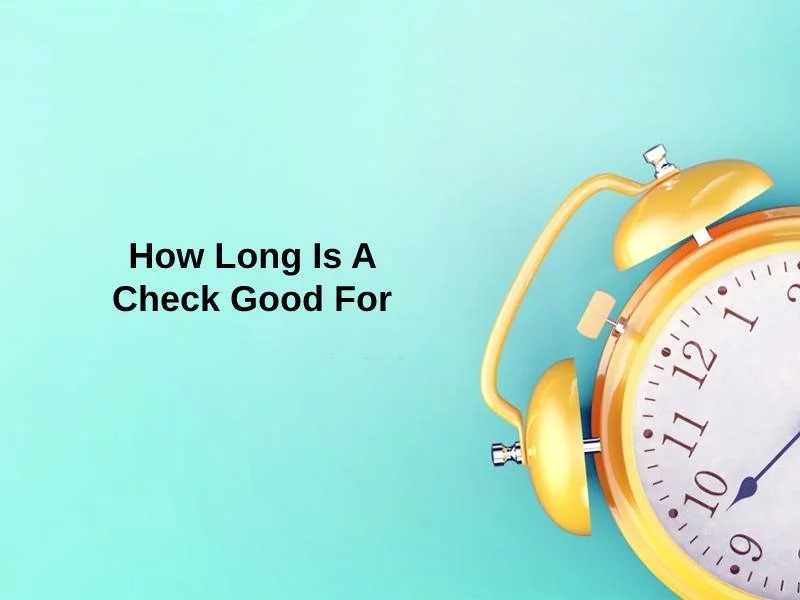Exact Answer : 3 to 6 Months
The banking world is so huge across the different countries. Every country has its norms for every sphere of the banking world. Now, a check is something that is mostly used for both personal and professional work. The validity parameter varies from one to another for personal, business, and cashier checks.
The validity period starts from three months i.e 90 days to six months i.e 180 days. Also, there are different protocols applied to old checks. It means if you forgot to deposit your check on time or misplaced it somewhere and found it later. There are separate protocols for those checks other than the regular norms.

How Long Is A Check Good For?
The vastness of the checks directly depends upon their nature. It means that what type of check it is. However, the details regarding the validity of the check vary with your bank and its policies. Generally, most of the checks are good for 90 days to 180 days.
Generally, six-month validation is a general rule but it doesn’t apply to all types of checks and money orders. Personal, business, cashier, treasury check, state/local government check, etc these are some of the types of checks. Here is the detailed information regarding the termination of different types of checks.
Business Check – Generally, for all the business checks the time limit is of 3 months to 6 months. There is the probability that some checks may have termination dates listed on the front of the check. Usually, the multi-national companies and big industries have set their time limit with a distinct date to deposit your check. It would be better to withdraw your cash before the termination date has passed.
Personal Check – A personal check is a check that is concocted from your saving or checking account. It can be used for any personal use such as billing, buying anything, rent, etc. The personal checks are valid from 3 to 6 months from the issuing date. The validation date can be varied from bank to bank as well as country to country.
Treasury Check – The treasury check has the validation of 12 months i.e 1 year. The date listed on the treasury check is good for one year after the date. Withdraw it within 365 days of a year.
State/Local Government Check – The checks issued by the state/local government expire from 6 months to a year. The check validation may vary from state to state. As per your state law, you will get to know about your state check validity state. The best thing is to deposit it the very next day after receiving it.
The table describes the validity period of different types of checks. Here it is –
| Types of Checks | Validity |
| Personal Check | 3 to 6 months |
| Business Check | 3 to 6 months |
| Cashier Check | 3 months |
| Treasury Check | 1 year |
| State/ Local Government Check | 6 months to 1 year |
Why Is A Check Good For So Long?
It’s worth noting that every bank has its guidelines under the expiration and validity of the checks. Most of the banks have 60 to 90 or 180 days i.e 3 months to 6 months validity of different ranging of the checks. As per Bankrate, several banks process old checks too, only if funds are still available.
However, the government has strictly stated to all the banks that if they found any loop regarding the check or have any doubt. They have all the rights to reject it. Usually, it doesn’t happen to regular checks. It has been applied on old checks that can be accepted, rejected, or keep on hold by the bank.
Conclusion
Every type of check has its pros and cons whether its validation period or other options. If you receive any type of check, try to deposit it in the bank as soon as possible. Dawdling it unnecessarily may create any problem to withdraw your cash. The validation time limit of the major checks has been discussed above very well. Deposit your personal, business checks, etc on time and get your money.